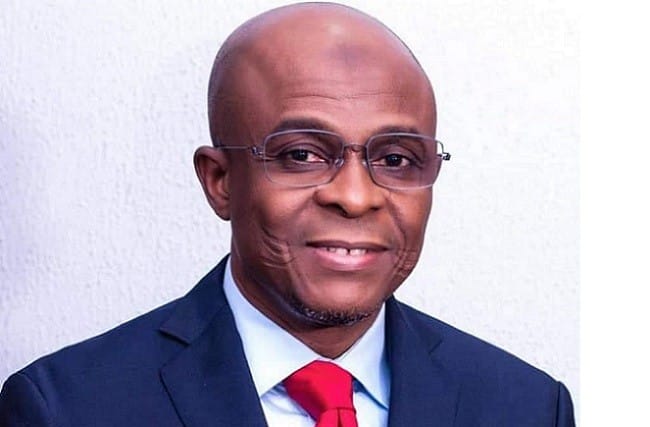Nigeria occupies a prime position in international trade considering her tremendous volume of trade; including imports and crude oil exports, beating many of the West African countries in container traffic.
In 2023, Nigerian ports according to statistics handled 1.56 million TEUs of containers. One of the countries competing with her favourably in the sub-region is Abidjan Port in Côte d’Ivoire after the opening of a new container terminal in December 2023.
As reports have it, Abidjan port is considered the heart of the Ivorian economy, handling 80% of the country’s commercial exchanges with the outside world. And the target of the management of Nigerian Ports Authority (NPA) under the leadership of Dr. Abubakar Dantsoho is to reposition the nation’s ports to achieve maximum level of contributions to the national economy as well.
With dwindling fortunes from the oil sector, the nation’s marine and blue economy sector is adjudged as next in terms of contributions to the national economy. This explains why NPA leadership and others, are striving so hard to meet the expectations of government.
In the ports sector, a lot of transformation is going on. The Lekki Deep Seaport that started operations over a year ago and other upcoming deep seaport projects are all expected to position Nigeria in a question of time as really the giant of Africa in maritime trade.
Already, the NPA boss, Dantsoho, has unveiled his visions for the development of the nation’s ports. On assuming office, Dantsoho affirmed his commitment to reposition the nation’s ports. The expectation is that when this is done, the nation’s ports will have a clear lead in West and Central African region and put behind the current record of the Abidjan port.
This is the same for some of the deep seaports being planned in Badagry, Calabar and Akwa Ibom. Like Abidjan port which has transhipment and intermodal facility, Lekki port also has state of the art ship-to-shore cranes in addition to digital scanners. The new management of the NPA insists that apart from Lekki port, other upcoming deep seaports shall equally have the same facilities as part of the efforts to position Nigeria as a clear transshipment hub in West Africa.
Global Ports Scenario
Top ranking global ports are known for high level of efficiency. This is made possible because of the level of technology deployed in ports operations. When ports infrastructures are readily available, the ships calling at the ports do not spend so much time before the goods are discharged. This is the same for clearing of the same goods by freight forwarders. In advanced ports such as United States of America Singapore, China, Japan, Hong Kong, Greece, Norway, Germany, among others, state of the art cargo handling equipment are deployed. The facilities at the berths must be in good condition to handle any size of ship with cargoes. The quayside must be firm. The cargo handling equipment for discharge operations must be of required capacity. This saves the vessels calling at the ports a lot of time and costs. This is what makes every port friendly. In these ports, even boarding of vessels is accompanied with high level of efficiency with technology that can detect hidden drugs or arms that are offensive. In most of these ports, the freight forwarders begin and conclude the process of clearing these goods for their owners in the comfort of their offices, and the rest is for the truck driver to go and take delivery at the port. There is hardly any room for physical examination of goods.
Ports Infrastructure Rehabilitation
Over the years, some of the nation’s seaports have been suffering decayed infrastructures in both Lagos and Eastern ports. Some of the issues include poor channels, shallow draft, near quay apron collapse, among others. The former administration of President Muhammadu Buhari had promised addressing these issues but time was not on their side.
In the past one year, the NPA has been planning to rehabilitate the Tin -Can Island port and Lagos Ports Complex, Apapa. In Tin Can, the plan is to reconstruct the 2,563m quay wall and pavement while at the Lagos port complex, the plan is to reconstruct the 2,020m quay wall between Berths 4 and 14.
The landlord of the ports also plans to “upgrade the Eastern Ports, including Calabar, Warri, Onne, and Rivers Ports”. The organisation explains that the objective is “Increase the draft at the quayside to accommodate modern vessels of all sizes, reduce transport costs, invest in efficient transport infrastructure and enhance maritime safety.
The concern of the management of the organisation is that some of the physical infrastructures on ground at the ports are finding it difficult to accommodate bigger vessels. So, the only way is to work on increasing the draft at the quayside.
Funding
Perhaps the biggest obstacle to the rehabilitation efforts has been fund. As at November last year, the former Managing Director , Mohammed Bello had on the occasion of the 43rd Port Management Association of West and Central Africa (PMAWCA) said that the agency was planning a $1.1bn rehabilitation of the ports infrastructure. In April this year, the organisation was reported to have secured a $700m loan from Citibank to execute the rehabilitation of the Apapa and Tin-Can Island ports. There was also report that the agency was discussing with other funding agencies to get more funding for the Eastern ports. The NPA which is excited that the Lekki Deep Seaport has started operations is optimistic that the Badagry Deep Seaport will follow next having signed an agreement with the Middle Eastern party to start construction work in 2025.
Dantsoho’s Transformation Agenda
On assuming office, the new NPD MD, Dantsoho, who equally had been in the system undertook a tour of the ports. During this tour, it was clear that addressing the decay in the ports infrastructure was paramount in his agenda of transformation. His agenda, according to his aides, is multi-dimensional in what will lead to addressing all issues of inefficiencies in the ports. This includes from the time the ship berths at the ports, there should be international standard of cargo handling that does not allow delay in any operation. What has often been discovered is the delay in evacuation of containers. He believes that achieving efficient ports operation is possible by adopting a number of strategies. Among these are introduction of full automation and deployment of modern equipment as ships berth at the ports with their cargoes.
While taking over affairs of the NPA from his predecessor, Bello Koko, the new MD affirmed his determination to reposition the organisation in a bid to impact positively on increased productivity, efficiency and more revenue. Indeed, not unaware of the intense competition from the neigbouring ports, Dantsoho promised to rise to this task. He explained that this would be to reduce costs of doing business as well as make Nigerian ports more business friendly.
He said while addressing staff, “As we embark on this journey together, I wish to seize this opportunity to state that our main goal is to reposition the agency for increased productivity and greater efficiency for improved revenue generation to the authority and country.
“We must rise to the intense competition we face from our neighbours. We must work tirelessly to improve efficiency, reduce costs, and enhance the overall user experience in our ports.”
In this regard, he assured that “infrastructural renewal and development” would be improved upon.
He also stressed the need for collective efforts so as to achieve the objectives of the agency, adding that his administration believes so much in “collaboration and teamwork.”
He pointed out the importance of digital transformation and his commitment in the process to deploy the Port Community System being championed by the organisation. He did not forget to point out the logistics involving cargo arrival along the port corridor.
He affirmed, “We would continue the digital transformation of the NPA and reinforce the current efforts at deploying the PCS, which we believe is key to our dream of total automation of our processes, thereby eliminating leakages and corruption.”
To improve on the cargo handling as ships arrive the ports, the MD promised to engage the terminal operators.
Dantsoho added, “the receipt of cargoes at the terminals and loading onboard ships must be done efficiently and cargo evacuation from our ports, deep sea ports development, to unlock the full potential of the Nigerian economy.
“We will begin engagement with terminal operators and shipping lines as primary recipients of our services to feel their pulse and, thereafter, other stakeholders to seek greater cooperation and collaboration.”
Dantsoho had equally reiterated Nigeria’s readiness to transform operations at the ports during the recent World Ports Conference held in Hamburg-Germany. According to him, Nigeria is determined to accelerate the implementation of National Single Window project so as to deepen ports efficiencies. In doing this, human interface that has been undermining efforts in trade facilitation will be eliminated, he assured.
He told participants at the world ports event, “The tremendous policy support provided by Nigeria’s Minister for Marine & Blue Economy, Adegboyega Oyetola, propelled the Nigerian Ports Authority’s finalisation of the crucial phase of the Port Community System (PCS) which is the precursor to the NSW.
“The NPA is fully aligned and we were deliberate at ensuring that our ongoing Port Modernization programme is guided by the imperatives of eco-friendliness.”
Credit: ShippingDaylive


































































